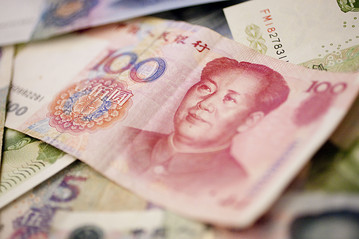Home -> News -> Media -> Could the Yuan Be Overvalued?
Could the Yuan Be Overvalued?

At a time when markets consider the yuan practically a one-way bet and foreign governments are still badgering China to let its currency rise, some contrarians hold the opposite view.
The yuan isn’t too cheap but too expensive, and poised for a fall, Diana Choyleva of London-based analysis firm Lombard Street Research argued in a report last week.
Ms. Choyleva accepts the widely held belief that China has held its currency artificially cheap for many years, building up a huge treasure trove of foreign exchange reserves along the way.
Most economists believe the yuan is still undervalued and expect continued appreciation. Capital Economics, another London-based firm, predicts $1 will buy just 5.90 yuan by the end of 2014, compared with 6.10 today and 6.80 in 2010.
China saw renewed capital inflows last year, after a pause in 2012, indicating markets still think the country’s assets are attractively priced.
But Lombard Street takes a different view. The firm estimates China’s currency reached “fair value” in 2011 and, after continuing to rise gradually, is now overvalued.
Convinced that China is badly in need of capital, the country’s policy makers have long encouraged inbound investment but kept in place barriers that make it hard to take money out of the country, with individuals limited to transferring $50,000 a year.
There are plenty of ingenious ways around those controls, from fake trade invoices to hard-to-trace transactions with bitcoin, but getting money in and out of the country for investment remains a headache.
China’s leaders are now reportedly planning to relax capital controls as early as next year. But the results are hard to predict. Lombard Street is confident that capital outflows would be much stronger than inflows, with mountains of cash just itching for a chance to get out of the country and into foreign property or stock markets.
“The free movement of capital is much more likely to result in Chinese capital outflows exceeding inflows, pushing the yuan down and domestic interest rates up,” Ms. Choyleva wrote in the report.
That chimes with estimates by Tamim Bayoumi and Franziska Ohnsorge of the International Monetary Fund. In a paper published last year, they argued that although capital-account opening would lead to massive flows in both directions, outbound capital would dominate. Net outflows could be as much 11% to 18% of China’s GDP, they estimated. That would put downward pressure on the currency.
A weaker yuan would reinvigorate China’s flagging export sector but push up the cost of imports, holding back the transition from a growth model turbocharged by high rates of investment to one that serves consumers.
China’s central bank believes the renminbi, as the currency is also called, is now close to its equilibrium level, and denies that its regular interventions in foreign-exchange markets amount to manipulating the currency.
The yuan may have a little further to rise, but it is approaching fair value, said a front-page article in Monday’s overseas edition of the state-owned People’s Daily, which serves as a mouthpiece for the Communist Party.
“The renminbi will continue to face upward pressure in the future, though the scope for appreciation will be narrower, with upward and downward movements becoming the new norm,” the piece said, adding there is little prospect of sustained depreciation.
The yuan has continued to rise against the dollar since the beginning of the year, even as virtually every other developing country’s currency, from the rand to the ruble, has fallen victim to a bout of market jitters.
But the question of just what one yuan should be worth, and whether the wall of money trying to get out of China outweighs the wall of money trying to get in, is among the most important facing the global economy.
If Lombard Street is right and the yuan stumbles, China’s growing importance as a market for everything from copper to Cabernet Sauvignon will be badly curtailed.
- .U.S. Treasury looks to hold more cash to deal with future crises
- .Yum, McDonald's in Shanghai food safety investigation
- .Yellen defends loose Fed policy, says job market still too weak
- .Carl Icahn says 'time to be cautious' on U.S. stocks
- .Samsung Electronics says second quarter profit likely down 24.5 percent; worst in two years
- .U.S. jobs data seen reinforcing strong growth outlook
- .Asia stocks up on buoyant Wall Street, oil near highs

